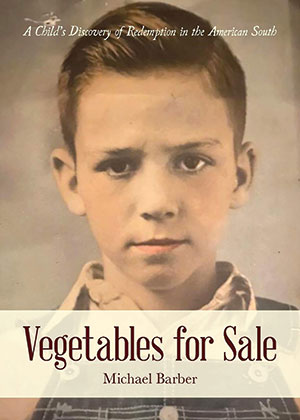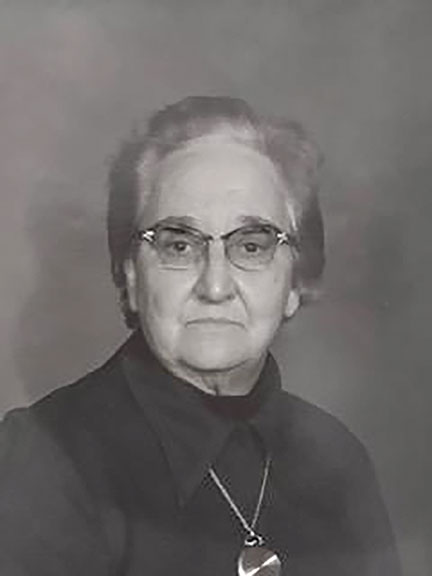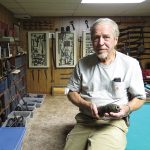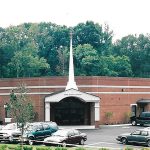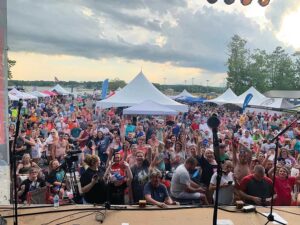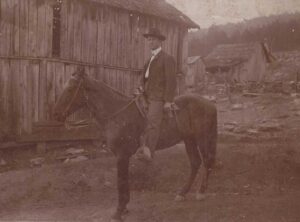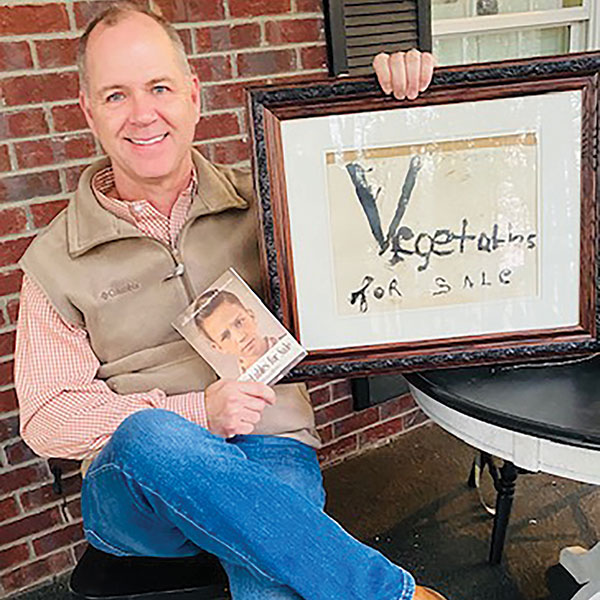
Former Pell City Schools Superintendent Michael Barber pens uplifting book
Story by Scottie Vickery
Submitted photos
Michael Barber was 10 years old the day he took his daddy’s prized Pontiac Catalina for a joyride. After returning it safely to its covered parking spot, he thought he’d gotten away with his grave sin. But a twist of fate and a dog named Whiskers caused things to take a terrible turn. Let’s just say a dog mistakenly left overnight in a car is capable of causing a whole lot of damage.
That’s not the only lesson young Michael learned that day. He realized his father loved him far more than his most prized possession. “My father never stood behind a pulpit and preached a sermon, but he taught me the most important spiritual lesson I carry in my heart to this day,” Barber recalled. “Total forgiveness is just that, it is total.”
A former teacher and retired superintendent of Pell City Schools, Barber has spent his adult life educating children, but the “eternal lessons” of his childhood were learned outside of a classroom. They often took place on front porches and came in the form of joyrides, dogs, shotguns and a cheap necklace.
Barber shares seven stories from his childhood – including the story of his father’s Catalina – in his new book, Vegetables for Sale: A Child’s Discovery of Redemption in the American South, published in November. “It’s a simple book for a complicated time,” Barber said. “These are stories of redemption, unconditional love, forgiveness and mercy.”
The title comes from a sign 5-year-old Michael helped his grandmother make, a testament of his grandmother’s wisdom. She was tired of him asking for candy money, so she set up a vegetable stand on the side of the highway and put young Michael in charge. “My grandfather had a third-grade education, and my grandmother only finished sixth grade, but they knew we needed to know the value of certain things, and one was the value of money,” he said.
“I didn’t make much money, but the lesson I learned was worth millions,” he wrote in the book’s introduction. “It is better to earn than to be given, with the exception of God’s love.” As a reminder, Barber framed the sign he made with his grandmother (“She wrote the letters and I painted it”) and hung it alongside his diplomas in every office he has ever had.
A preacher, public speaker, and bluegrass musician, Barber didn’t set out to write a great work of literature or theology. He intended the book to be a ministry tool, one he could leave behind when he spoke at prisons, jails, nursing homes or revivals. “These are stories I’ve used from the pulpit,” said Barber, the pastor of Mt. Zion Baptist Church. “I knew some had the ability to move people because I’d seen how God had used them during sermons.”
The book is a small one, measuring 5 inches by 7 inches with fewer than 100 pages, and that was Barber’s intention. “It’s designed to be a book you could put in a purse, in a glove box, in a tacklebox,” he said, adding that his hope was to make the book more inviting by writing something that could be read in one sitting. “It’s written by a preacher, but it’s not preaching. Whatever God wants to do with it, it’s out there. He’ll put it in the right hands.”
A special place
Barber, 55, grew up in Pell City with his brother and sister in a time when life was simpler. “The American South has changed in the past half century of my life, much for the good, but I admit sometimes I find myself missing a place I never left,” he wrote.
His days were filled with bike rides, fishing, baseball, watermelon, peach cobbler and lessons he didn’t realize he was learning. “I’ve always had people invest in the right things in my life – my parents, my grandparents, church folks,” Barber said. “They made sure we learned the right things. We were held accountable if we did something wrong, and they didn’t always come to our aid bailing us out.”
They also served as wonderful role models. His father, who was the first in his family to go to college, was a certified registered nurse anesthetist and owned an anesthesia corporation. “I think he put everyone in the county to sleep at some time,” Barber said. His mother was a registered nurse, and Barber thought he would follow in his parents’ footsteps and enter the medical field. His plans changed, though, when he got a feeling he just couldn’t shake. “The Lord kept leading me to education,” Barber said.
His Sunday school teacher, Andrew Wright, was the principal of Iola Roberts Elementary School at the time, and his pastors were teachers, as well. “To have three men in your life who were elementary school teachers and in ministry showed me how God could use you in education,” Barber said. “God has always put the right people around me.”
Although he retired from the school system in 2019, Barber performs contract work for the Alabama Association of School Boards. “I’ve had a great experience in public education,” he said. “To me, education is ministry,” he said.
Barber was an assistant principal in 1995 when God called him to preach, as well. He had a guitar and his Bible, and he traveled around ministering at nursing homes and “wherever God placed me.” He landed at Mt. Zion as a deacon and has been preaching for about 25 years.
One ministry he particularly enjoys is Cake Walk, the bluegrass band he helped form that earned its name from the early days of playing at cake walks and fall festivals. “Mt. Zion is a musically blessed haven,” he said. “Anyone you pick out of a pew can pick something, play something or sing something.”
Barber, who plays mandolin, guitar, banjo and bass, said the size of the group fluctuates and the members range from 8-year-olds to 90-year-olds. “We’re not the best musicians in the world, but for some reason when you put us all together, it sounds pretty good,” he said. “It’s a joyful noise, I know that.”
The group plays live every Sunday morning on WFHK 94.1 The River, and before the coronavirus pandemic, the members regularly shared their music at nursing homes and other places. “I’ve seen people who were really sick wiggle a toe under the cover when they hear the banjo,” Barber said. “It’s a wonderful ministry, and members of the band have said they had no idea that service could be so much fun. For me, that’s when you really hit the mark.”
A tool for ministry
Barber’s outreach ministry was the impetus for Vegetables for Sale, and the idea had been in the back of his mind for a while. “I had a bunch of stories I wrote years ago, and I’d always planned on doing something with them, but I didn’t know what that would look like,” he said. Once the pandemic hit last March, Barber finally had time, so “I went to the attic and started gathering stories I’d written in old spiral notebooks.”
Although he’d planned to leave them behind at speaking engagements, COVID-19 changed those plans, so Barber started to give them away. “My idea of promoting it is leaving a copy on the table at Starbucks,” he said with a laugh.
After his wife, Legay, posted about the book on social media, it started taking off. “We accidentally, I guess, launched it,” Barber said. “The potential to reach people through the internet is mind boggling.” The book, which features a childhood photo of his father on the cover, is available through Amazon, Walmart.com, Barnes & Noble and Kindle. It will soon be available on Audible, an audiobook book service from Amazon.
Barber said he read the book for the Audible recording because the subject was so close to his heart. “This is a book about my mom, my daddy, my sister and brother and my grandparents,” he said. “I sure didn’t want someone reading it and having it be just a book to them. Besides, I hate when people try to fake a Southern accent.”
Although he never expected to sell a single copy, Barber said he’s heard from people from all over the country who have shared how the book has touched them. A hospice nurse shared how a family read it together during the last hours of their mother’s life, and it gave them a chance to laugh and cry together. Another woman wrote to say the book helped her after receiving a cancer diagnosis.
“If God doesn’t use it for anything other than that, it was worth writing it and putting it out there,” Barber said. “I’m definitely not a writer, and I’ll never be a best-selling author, but this was a labor of love. Whatever voice we have, whether it’s a guitar or an ink pen, as long as we’re giving God the glory, He’ll use it.”














